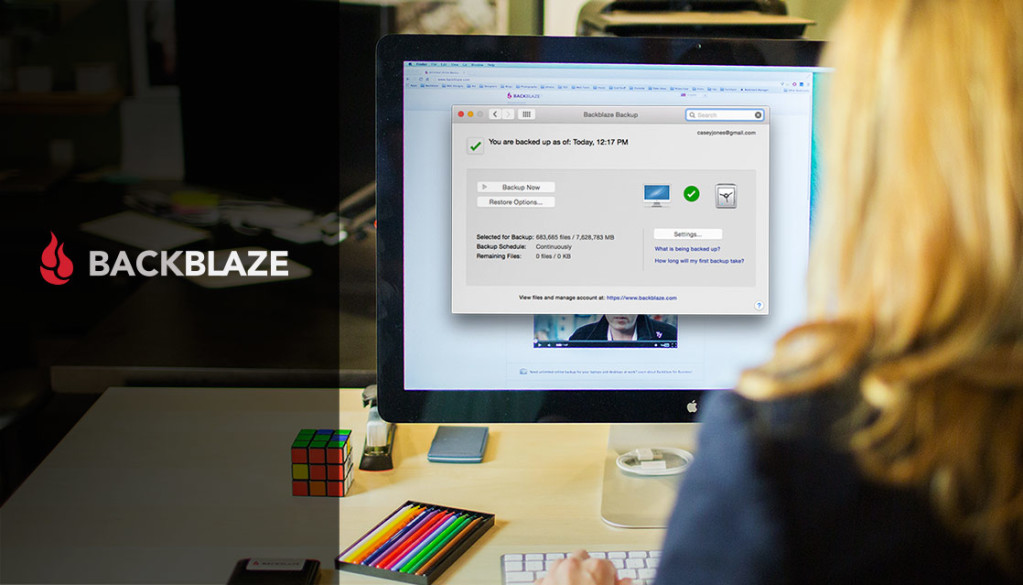In this age of fast connection speeds, dirt-cheap drive costs, and commodity online storage and bandwidth, why would anyone not have a backup routine?
This is especially vital, of course, for musicians. Data integrity is part of your creative process. You could lose creative ideas forever. You could lose work and income. You could lose data on tour.
Of course, the problem isn’t that musicians don’t understand the need for a backup – they do. The problem is that they likely assume backing up requires more effort, time, skill, and money than it actually does.
The thing is, commodity online services are providing a terrific failsafe.
You can spend about fifteen minutes right now, and for a few bucks backup everything without having to think about it.
I know some of you administer servers for a living, so if you’ve got a complex script backing up your data right now to a server you own and a stack of drives in the studio doing local backups, good for you. (Actually, I want to hear about that – do sound off in comments.)
But if that description doesn’t fit you, there are some pretty easy steps you can take right now. Based on my experience, that looks something like this:

Choose a set-it-and-forget-it cloud backup. Online backup right now is absurdly cheap and easy. I’m not talking about solutions from Dropbox, Apple, or Google. I’m talking dedicated online backup services (Carbonite, Mozy, etc.). Of these, the two I most readily would recommend are Backblaze and Crashplan.
Basically, for a few dollars a month, you get unlimited backup of everything – your local drive and connected external drives, so long as you’re online. (It might be time to think about an Internet connection in the studio, just to do this.) Both platforms offer easy-to-use, cross-platform tools and quick restores. I’ve found I’ve relied on them sometimes when I accidentally deleted a file or screwed up a project, so when you have something like this, it finds uses you don’t expect.
Both apps also include native software and mobile apps.
I rather like Backblaze because it’s so dead-simple to operate, and it backs up absolutely everything. Also, unlike Crashplan, you can quickly grab big files from a Web browser.
That said, Crashplan is the more sophisticated option, with more interactive restore options and backup configurability. It also includes integrated local backup at the same time as online backup (though that wasn’t terribly important to me). And it runs on Linux, not just Mac and PC.
Both offer free options. But either would be suitable for musical use – though I’d choose Backblaze’s unlimited downloads from the Web interface for quick access, and probably Crashplan’s backup sets to facilitate dedicated backups of just project files. (I’m pondering trying Crashplan in place of Backblaze for a while, so I can report back on that.)
Keep oft-shared media in a dedicated cloud tool. This is a godsend for me when it comes to critical files that other people need to get at, like downloads of albums, PR folders, and project or tour information. Google Drive and Dropbox are two common solutions; there are also self-hosted tools you can run on your own server. I especially like Google Drive for its integration with other tools (Slack for chat, Wavebox for email in my case). Cloud tools of course can also take care of tasks like backing up video, audio, and photos you capture with your phone – so my road tour and field recordings are always safe.
Don’t forget local storage. Online backup is a start, but for any essential content, I think you want a dedicated local copy, too. For me, the strategy is to buy any drive in pairs – fast 2 TB production drive = add a cheap 2 TB backup drive to mirror it.
It also makes sense to have a redundant copy on a mobile hard drive that comes along on tour. This should naturally include all the files you need to play. (That could be the topic for another article.)
Use Git for development. Developers should do this already – use something like GitHub or another version control system both to maintain changes as you work and creates a backup. (Just mirror that repository remotely.) This is especially relevant to music, though, because apart from music coding tools like SuperCollider and Csound, patcher environments Max/MSP and Pure Data also store files as text and can be easily used in a version control context.
Encrypt critical files. It should go without saying that if you’ve got personal information as part of the backup, you’ll want security. This is something else the online services take care of for you, but it’s worth watching on local drives.
Set aside some archiving time. Lastly, it may be useful to just set some time for archiving and organizing old projects. I find this can turn a backup and file management routine into something creative – because I’ll often find bits and pieces to reuse in new music.
How do you work? Let us know your backup and archive routine, and any useful services and tools you’ve found – or questions or problems you might have. We can do a follow up if there’s interest.